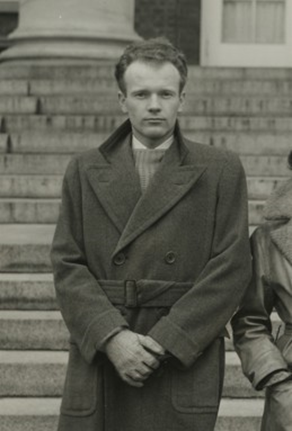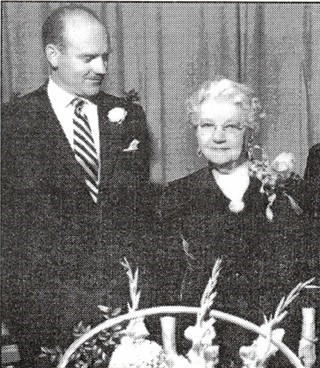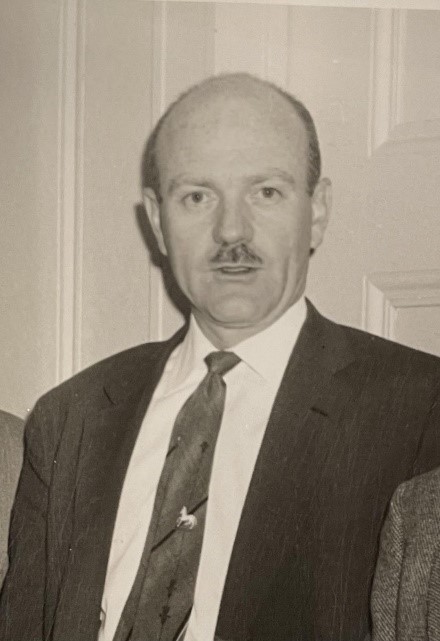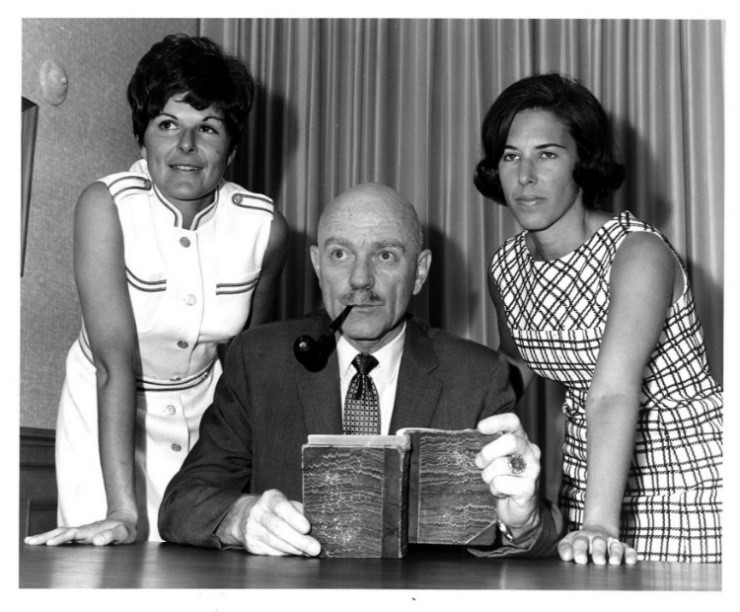Paxton Price
 Paxton Pate Price was born in Batesville, Arkansas, on June 18, 1913. His mother died of tuberculosis when he was a child. When Price was 10, his father remarried and moved the family to New Mexico, where his father worked in railroad communications and farmed alfalfa near the Rio Grande. Price graduated from Hatch High School in 1931.
Paxton Pate Price was born in Batesville, Arkansas, on June 18, 1913. His mother died of tuberculosis when he was a child. When Price was 10, his father remarried and moved the family to New Mexico, where his father worked in railroad communications and farmed alfalfa near the Rio Grande. Price graduated from Hatch High School in 1931.
Price graduated from the New Mexico Military Institute in Roswell in 1933. He graduated with a degree in history from George Peabody College for Teachers in Tennessee in 1937. Price taught history and civics at Roswell High School before returning to Peabody College and earning a bachelor’s degree in library science in 1939 or 1940. He was assistant librarian at the New Mexico Military Institute from 1940 to 1943. Price married Ella Tarbell in 1941. Ms. Tarbell was great-niece of Ida Tarbell, a famous muckraker and reformer of the Progressive Era and pioneer of investigative journalism.
In 1943, Price entered the U.S. Army as a private. He attended Tank Destroyer Office Candidate School and was commissioned as a second lieutenant in 1943. He served in Europe, mainly in Army intelligence. In 1946, he became a member of the Missouri National Guard where he eventually rose to the rank of lieutenant colonel.
 After the war, Price attended graduate school and studied library science at the Columbia University from 1946 to 1947. He served as library director at Northwest Missouri State College in Maryville, Missouri, from 1947 to 1949.
After the war, Price attended graduate school and studied library science at the Columbia University from 1946 to 1947. He served as library director at Northwest Missouri State College in Maryville, Missouri, from 1947 to 1949.
In 1949, Price became the Missouri State Librarian. Price proposed the creation of regional cataloging services at the 1955 Missouri Library Association conference, which led to the creation of the Southwest Missouri Library Service two years later. Missouri became only the second state to offer the service. Eventually, Missouri would have multiple cataloging consortia across the state.
Price was heavily involved in the Missouri Library Association throughout the 1950’s. He served as president of the organization in 1958-1959 while State Librarian. From 1959 to 1963 he served on the American Library Association’s governing council.
In 1962, Price was one of four librarians in North America to be selected by the Organization of American States to work with Latin American countries to develop a plan for library development. The group created a bilingual planning manual for future library services in the countries.
 During Price’s fifteen-year tenure as State Librarian the number of county libraries doubled to sixty-nine, state aid to public libraries increased seventy-five percent, and Missouri had the fourth-most bookmobiles in the country. He spoke to organizations throughout the state about consolidation of libraries into larger units of services, and encouraged the formation of regional libraries through bookmobile demonstrations.
During Price’s fifteen-year tenure as State Librarian the number of county libraries doubled to sixty-nine, state aid to public libraries increased seventy-five percent, and Missouri had the fourth-most bookmobiles in the country. He spoke to organizations throughout the state about consolidation of libraries into larger units of services, and encouraged the formation of regional libraries through bookmobile demonstrations.
In 1964, Price was hired as the first director of the Library Services and Construction Act (LSCA) program in Washington, D.C, under the U.S. Office of Education. The LSCA was a predecessor of the Library Services and Technology Act (LSTA) program and provided Federal assistance to libraries for improving or implementing library services or undertaking construction projects. The program was funded by Congress until 1975.
In 1969, he returned to Missouri to accept the position of director at the St. Louis Public Library. At the time, the library was in a financial crisis. Price convinced voters to approve a tax increase in 1970 to stabilize the organization’s finances over the next decade. During his tenure, air conditioning and dehumidification was installed at the main library, which helped preserve the collection; a rare books room was opened at the main library; two new branches were opened and another expanded using Federal funds; a microfilm reading room opened; a media van was launched to provide outreach to playgrounds, parks, and ethnic community festivals; and evening telephone reference offered. He also introduced participatory management at the library.
 In 1971, Price proposed a reciprocal borrowing agreement with all public libraries in St. Louis City and County. St. Louis County Library rejected the offer in 1972, but the Municipal Library Consortium accepted the agreement. Reciprocal borrowing privileges were also extended to academic libraries in the area.
In 1971, Price proposed a reciprocal borrowing agreement with all public libraries in St. Louis City and County. St. Louis County Library rejected the offer in 1972, but the Municipal Library Consortium accepted the agreement. Reciprocal borrowing privileges were also extended to academic libraries in the area.
Price resigned from the St. Louis Public Library in 1977 and moved back to New Mexico. He was executive director of the Urban Libraries Council from 1977 to 1979. During this time, the Council’s major focus was the passage of legislation that would provide direct federal funding of urban public libraries. As a result, President Carter signed a five-year extension of the Library Services and Construction Act in 1977. In addition, Price testified on behalf of the Urban Libraries Council at the White House Conference on Library and Information Services in 1979.
In 1978, he married June Riekhof, a former Missouri librarian. In retirement, Price researched local history and authored “The Santa Fe’s Rincon Lived and Died on this Line”, “Pioneers of the Mesilla Valley”, and journal articles. He also edited “International Book and Library Activities: The History of U.S. Foreign Policy” and was a contributor to the “Library and Information Science Encyclopedia.” Price was a president of the Doña Ana County Historical Society.
Price passed away on January 28, 2009, in Las Vegas, New Mexico.
